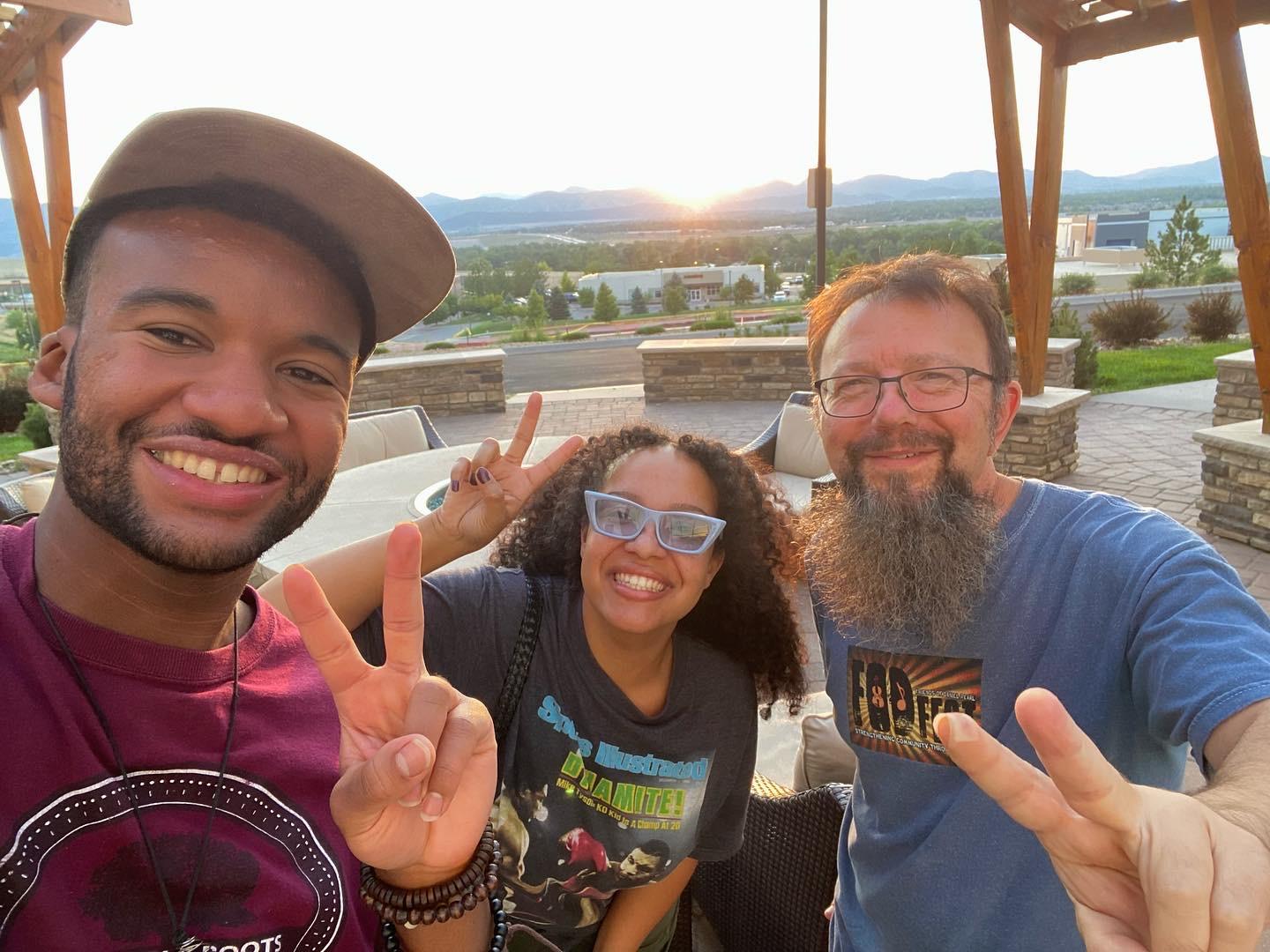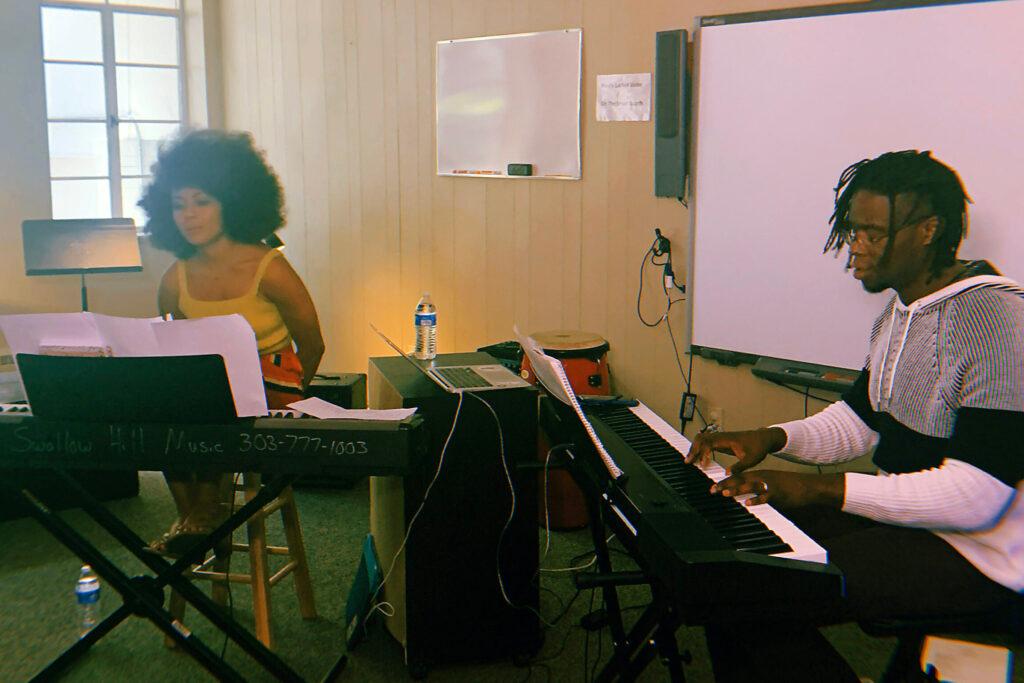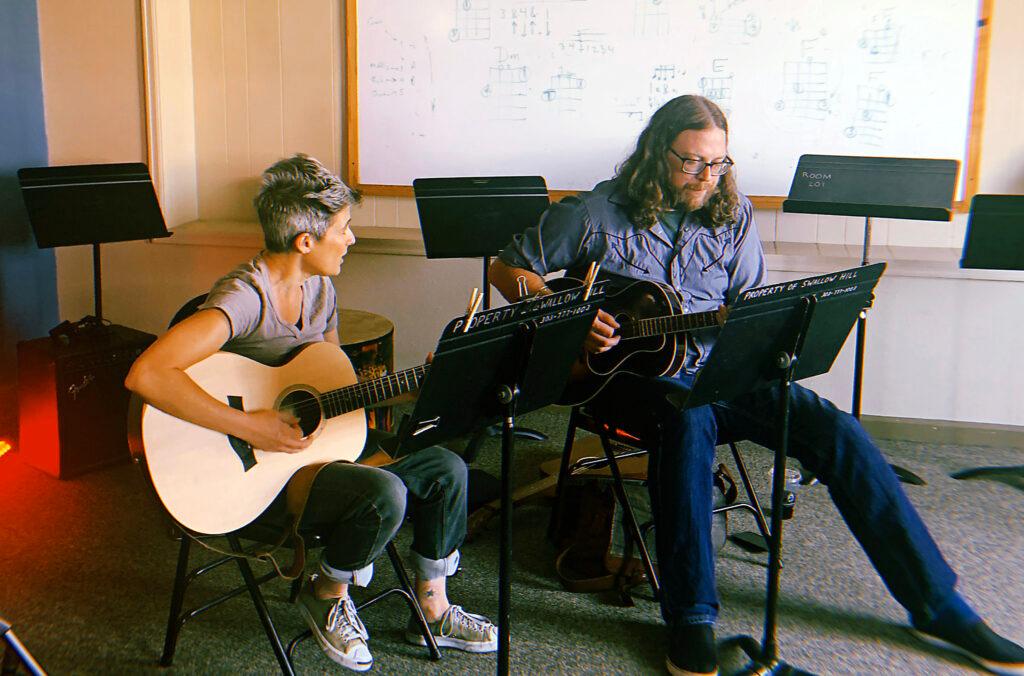
In 1963, Colorado Music Hall of Fame inductee Walt Conley recorded “The Ballad of the Walking Postman,” a song written by Buck Ram. The song honors and details the life of Civil Rights activist William Moore, a white postman and member of the Congress of Racial Equality who was assassinated during his one-man march from Chattanooga to Jackson, Mississippi.
Now, nearly 60 years later, a project advancing racial solidarity, equity and belonging in Denver is using Conley’s music to help sing its song of unity.
The Black Legacy Project is a nationwide celebration of Black history making a stop in Denver, one of seven nationwide.
In each city the project visits, musicians and non-musicians, Black and white, address the importance of walking in the shoes of "the other" to build bridges across racial differences and reduce interracial violence. Denver’s theme is Walking in My Shoes.
Trey Carlisle, co-director of the Black Legacy Project, said the project travels to communities to bring the groups together to discuss the Black American experience through song.
“And then we have local black and white artists create present-day interpretations of those songs. and co-write originals about how we can move forward as a nation,” Carlisle said.
The project is a program of Music in Common, a nonprofit that brings communities together through various music programs.
“It's for everyone to come together and humanize each other through music,” said Simone Alyse, with Music in Common. “The power of music, it's a tool — it's so powerful. “ “I think there's something about music that makes people hear things more or maybe easier or they can feel it more instead of just having a conversation.”
The Black Legacy Project got its inspiration as a way to do something constructive during the pandemic — and as a response to grief.


Carlisle says he and co-director Todd Mack got the idea for the project by listening to old songs whose messages of racial justice are still relevant today.
“Todd and I were both grieving over the deaths and killings of people like George Floyd, Ahmaud Arbery, Breonna Taylor, and Elijah McClain. And also we felt this source of inspiration in the midst of our grief by seeing so many folks across racial divides, Black and white alike, moving in solidarity, calling for change,” Carlislie said. “So we wanted to explore, how could we create a space and opportunity for community members to revisit these songs, see how their messages still relate today.”
As with each of the other cities, the Black Legacy Project works with local project coordinators like Shawn Bosley, who provide context for how a particular area has addressed race relations in the past.
“Of course, 2020 changed everything with the pandemic through, especially the racial divides that we saw go through the country. And during that time, we really saw Black and white artists in Denver really come together and cultivate a culture for change out here in Colorado,” Bosley said. “And so I do see that happening. And so with the music in common, coming in now with the Black Legacy Project, it's almost right on time because we, the artists out here, they're hungry, but they're also hungry for change and they want to not only contribute, but they wanna act, they want to provide that service.”
The project doesn’t just look at what’s happening now, it also tries to show what Black America was like at a particular point in time, turning people’s attention to often-overlooked parts of its past, said co-director Todd Mack.
“In choosing these first seven communities to bring Black Legacy Project to, really what we were trying to capture was how you could create a snapshot of America, how you could show that Black history exists in every corner of the country, even in places where you think none exists,” Mack said. “And so in, in choosing the communities that we're going to, we were kind of looking at big city, small, rural, deep south, far west, and really just trying to create this overview of America.”
On Sunday, September 11 at 7 p.m., Swallow Hill Music in South Denver will host a free concert as part of the Black Legacy Project's trip to Denver. It includes a discussion with the project's co-directors and musicians after a screening of the Black Legacy Project documentary short.
The Black Legacy Project will make stops in Massachusetts and Los Angeles later this year.









